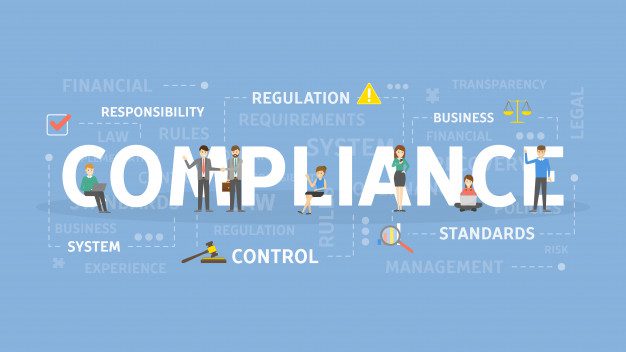In today’s digital world, hackers are adapting to the highly advanced security landscape and quickly evolving their technique of hack. Breaking into systems illegally and accessing critical data, cybercrimes are still prevalent despite taking numerous precautionary measures and enforcing high-level security measures.
Millions of people each year fall a victim to cybercrime daily. So, with this, you have every reason to be worried about the security and confidentiality of your sensitive data. Further, you have more reasons to worry about switching over to the emerging and highly advanced Neo banking system in the Banking and Financial industry.
Neo Banks are virtual online banks that have no physical branch and work remotely. This raises questions on the security of their service offering and business operations. Since the majority of data breaches are related to online payment transactions, the risk exposure seems significant for Neo banks.
However, PCI DSS standards, which are essential Compliance requirements for the Banking and Financial industry, will now also apply to the emerging Neo Banks. This way, Neo Banks can ensure the strengthening of their information security measures. In today’s article, we will discuss the importance of PCI DSS for Neo Banks. But, before that let us first understand PCI DSS Compliance for the Banking and Financial Industry in general.
PCI DSS Compliance for the Banking and Financial sector
Banks that issue payment cards of brands like Mastercard, Visa, American Express, and Discover cards are required to comply with the Payment Card Industry Data Security Standard (PCS DSS). For that matter, any institute or entities that handle or deal with card data from one of the five major card brands are required to comply with PCI DSS requirements.
The Financial Institutes or entities that are contractually obliged to comply are expected to govern and secure payment card data of consumers as per the PCI DSS compliance requirements. The Compliance requirement is a set of information security standards developed and enforced to ensure that institutes or entities that accept, process, store, or transmit payment card information maintain secure environments to protect card data.
Basically, Financial Institutions, including issuing banks, merchants, and service providers that process transactions and enter into contracts with the five payment card brands need to ensure the security of cardholder data.
Even organizations that process just a few card transactions a month are expected to be PCI compliant. Moreover, even companies that use a third-party payment processing service are also expected to comply with PCI standards. The PCI Standard offers a detailed guideline to institutes on ways to secure and prevent data theft. It also helps financial institutes deal with events of a data breach. Although not a legal requirement, PCI compliance is required by the contracts that govern participation in payment card systems
PCI DSS for Neo Banking
PCI DSS is a set of norms that banks or any other financial institutes or entities that deal with payment cards are expected to follow in order to stay compliant. So, in this sense, Neo Banks are too expected to comply with the PCI Standards. As per the Standards, Neo banks are required to perform adequate security tests and implement necessary measures to ensure cardholder data is secure. Below is a list of security tests that banks are expected to conduct:
- Perform Vulnerability Assessment and Penetration tests on networks and applications at least once a year to identify all possible threats and vulnerabilities.
- Perform Security tests and Risk Analysis to identify known vulnerabilities and exploit them to gain more access to systems both at the application and network level.
- Test the networks to ensure that all networks, web applications, and end-points are secure.
- Perform a controlled data breach attempt to check for loopholes in systems and networks.
- Conduct tests on authorized and unauthorized wireless access points and identify weak areas or areas of concern.
- Conduct security awareness training programs for their staff to ensure they are educated and trained to deal with security measure challenges.
- Review periodically technical measures such as provisioning and hardening of firewall rules/configuration files, ensure server hardening, install and update anti-virus software, have in place two-factor/multifactor authentication, File Integrity Monitoring (FIM), etc.
- Constantly inspect, assess, and enhance the internal controls as per the evolving security landscape.
- Review internal compliance by performing annual audits every year.
Conclusion
While most financial organizations find it challenging to maintain and stay compliant with the PCI DSS Standards, likewise Neo Banks may face similar challenges, especially due to the nature, size, and resource availability of their business. Neo Banks too need to meet the security testing requirements in order to stay PCI DSS Compliance. This can only be achieved by setting necessary frameworks for risk assessment, and security testing for both network and application layer.
It is therefore highly recommended for Neo Banks to approach Cyber Security Consultants for availing their expertise on Compliance. Besides, just like any other financial institutes that fail to comply with the standards will have severe consequences of hefty fines, Neo banks too need to be cautious and ensure they comply with the standards to prevent incidents of a breach and consequences of fines.
Narendra Sahoo (PCI QSA, PCI QPA, CISSP, CISA, CRISC) is the Founder and Director of VISTA InfoSec.











